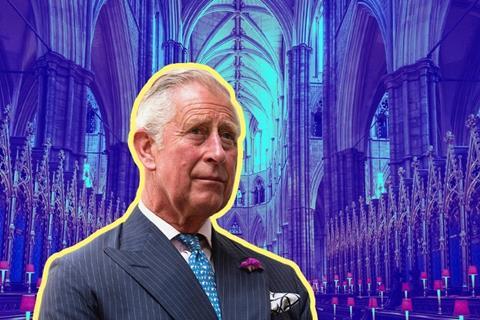With all the news coverage of the Queen’s passing and new King, and official ceremonies on TV, there’s a high chance that one of your children will ask questions about how the monarchy and church fit together. Andy Peck provides an ‘explainer’ so you are not caught on the hop.

What does it mean that the monarch is the Defender of the Faith and Supreme Governor of the Church of England?
These are historic titles that go back to the days of Henry VIII who was given the title of ‘Defender of the Faith’ by Pope Leo X. In those days all churches in the west were part of the Roman Catholic Church. But Henry split from the Roman Catholic church of whom the Pope was the head. The title was later given to Elizabeth I who was proclaimed ‘Supreme Governor of the Church of England’.
Today a new monarch promises to “maintain and preserve inviolably the settlement of the Church of England, and the doctrine worship, discipline, and government thereof, as by law established in England”. This is what is meant by the Church of England being the ‘established church’ and the official ‘religion’ in the UK.
So how does the monarch get involved in the church?
This is a procedural role, rather than direct involvement. The Church of England is led by appointed Archbishops, Bishops and Deans who the Monarch appoints according to the advice given. The main place where decisions are made for the Church is The General Synod which is made up of clergy and lay people.
Does that mean the monarch has to be a Christian?
Certainly the Royal Family are all baptised into the Church of England, and our Queen was clear in her faith, and happy to share it. In the 18th Century King George I, 11, III were all Lutheran. But whether any particular monarch is truly a Christian is between themselves and God.
Charles III mentioned the Church of Scotland in his proclamation speech. What’s that all about?
Scotland adopted the protestant religion before its union with England in 1707 and part of the arrangement in the union is that this would be preserevd. Monarchs have actually sworn to maintain the Church of Scotland since the 16th century. The Church of Scotland doesn’t have a ‘head’ but the monarch undertakes to protect the Church of Scotland as part of the Coronation oath and is a member of it, just as anyone in Scotland might be.
For more detail on this, go here: https://www.premierchristianity.com/why-did-king-charles-vow-to-protect-the-church-of-scotland/13820.article
Why no mention of Wales and Northern Ireland?
The King is sovereign of Great Britain and Northern Ireland, but there is no ‘established’ Church in Wales and Ireland. The Church in Wales was disestablished in 1920, becoming separate from the Church of England and ceased to be an “established” church for Wales with the (then) King as head. The Church of Ireland is also no longer an established church, having ceased to be the state church in Ireland in 1869.
How does this affect us, we are not Church of England?
It’s true it may not directly affect other denominations and church streams, but some argue that because the monarch promises to be defender of faith this effectively encompasses all churches. Certainly In countries where the official religion is not Christianity, Christian groups may suffer as a result, especially if the majority religion is hostile to Christian faith and practice.
Why are there so many different kinds of churches?
They largely come about because someone at some point in time believed their beliefs or practices needed to change. In particular churches differ on the structure (who has the power), the central beliefs and how they practise certain parts of their faith. Even in the Church of England there are many different styles and emphases. But in general all Christian churches believe Jesus is the saviour and Lord of the Church and that we need to put our confidence and trust wholly in him.































